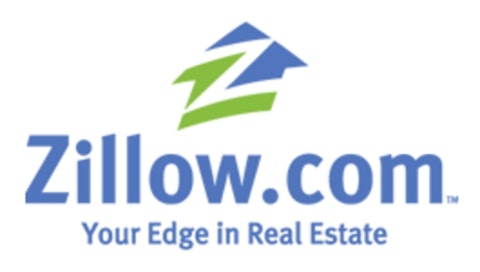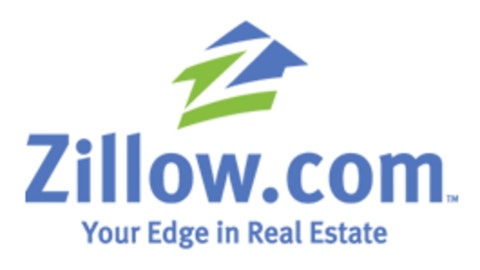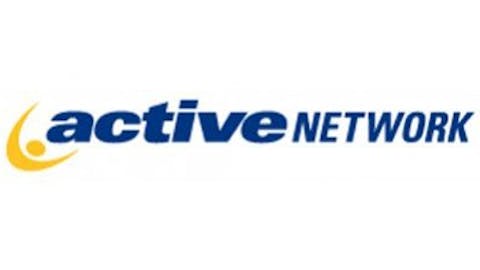The real estate search portal business is on fire, with rising U.S. property values fueling home buyer inquiries and greater amounts of transactions. According to the National Association of Realtors, consumers are increasingly using the internet in their research process, with 90% of buyers performing online searches. However, a rising percentage of the search activity is going to the mega portals, led by Zillow Inc (NASDAQ:Z) and Trulia Inc (NYSE:TRLA). Indeed, some of the major search companies have outsourced management of their real estate marketplaces, including Yahoo! Inc. (NASDAQ:YHOO) and AOL, Inc. (NYSE:AOL). So, how should an investor play the sector?
Given consumers’ expectation of free home-listing data, the search companies have had to find other revenue streams, such as real estate-related display ads and broker marketing services. Profitability has been hard to come by for most participants, due to the high expenses of managing website administration and content creation, as well as the costs of marketing to the brokerage community. However, the sector’s winners have built popular, comprehensive websites with innovative features that can help buyers through the entire purchase process.
Founded in 2004, Zillow Inc (NASDAQ:Z) had a first-mover advantage and boasts the industry’s highest monthly website users, 34.5 million as of December 2012. It has data on 110 million homes, roughly 75% of all U.S. homes, as well as a trove of 100 million pictures that it receives from user-generated and third party sources. Zillow Inc (NASDAQ:Z) has also been innovative with its creation of Zestimates, which estimate the value of homes based on proprietary algorithms that use neighborhood, tax, and property-specific information.
In FY2012, Zillow Inc (NASDAQ:Z) reported strong financial results, with increases in revenues and adjusted operating income of 76.9% and 87.1%, respectively, versus the prior year. Its sales growth benefited from gains in overall real estate activity, with both its monthly website user and real estate professional subscriber totals jumping significantly during the period. In addition, Zillow Inc (NASDAQ:Z) increased its industry market share, as it became the exclusive provider of home listings for Yahoo! Inc. (NASDAQ:YHOO)’s Homes website portal.
Looking ahead, Zillow Inc (NASDAQ:Z) plans to continue building its brand recognition, partially through its dissemination of real estate market reports to media partners, which currently cover approximately 276 local markets. It has also been adding to its complementary product capabilities through the acquisition channel, including recent purchases of technology solution providers to the home rental and mortgage sectors. With two years of profitable results under its belt, Zillow will be hard to displace from the top spot.
Meanwhile, Trulia Inc (NYSE:TRLA) hasn’t yet been able to break into the black, but it enjoyed similarly fast top-line growth in 2012, due to the favorable industry dynamics for residential real estate. While the company has a property database that is comparable in size to Zillow’s, Trulia Inc (NYSE:TRLA) also partners with leading internet companies to add value, including the incorporation of Google Inc (NASDAQ:GOOG) maps and Yelp Inc (NYSE:YELP) reviews.
In FY2012, Trulia Inc (NYSE:TRLA) reported hyper growth in its operations, with a 76.8% increase in total revenues. Its growth was paced by a more than doubling of its professional broker subscriber base, as well as a double-digit gain in its display ad business. Like Zillow, Trulia Inc (NYSE:TRLA) is trying to increase the usefulness of its website through its Trulia Inc (NYSE:TRLA) Voices and Trulia Forum content blogs, which provide trends, surveys, and advice on local markets.
Trulia is also getting aggressive on the acquisition front, with a recent offer to acquire competitor Market Leader Inc (NASDAQ:LEDR) for approximately $355 million. While Market Leader Inc (NASDAQ:LEDR) owns consumer-oriented websites, like housevalues.com and justlisted.com, it primarily sells technology marketing solutions to real estate professionals that it delivers remotely through its software-as-a-service product offering. In addition, Market Leader makes efficient use of its relatively smaller marketing budget by pursuing national franchisors that push the company’s product to their sales forces.
In FY2012, Market Leader reported solid revenue growth, at 32.2% compared to the prior year, though it still reported an adjusted operating loss. During the period, the company signed up two franchisors, Century 21 and Better Homes and Gardens, which added significant subscribers and allowed it to end the year with roughly 125,000 total subscribers. While the acquisition price is a steep multiple to Market Leader’s annual revenues, Trulia likely sees major synergies as it sells its own premium products to Market Leader’s captive customer base.
Much like the general internet search business, the real estate search business will likely reach maturity with a couple of dominant, profitable companies and a number of marginal players. With popular websites that are used by both consumers and real estate professionals, Zillow and Trulia should be the only competitors on investors’ radars.
The article Finding Opportunity in the Real Estate Portal Biz originally appeared on Fool.com.
Robert Hanley has no position in any stocks mentioned. The Motley Fool recommends Zillow. The Motley Fool owns shares of Zillow. Robert is a member of The Motley Fool Blog Network — entries represent the personal opinion of the blogger and are not formally edited.
Copyright © 1995 – 2013 The Motley Fool, LLC. All rights reserved. The Motley Fool has a disclosure policy.





